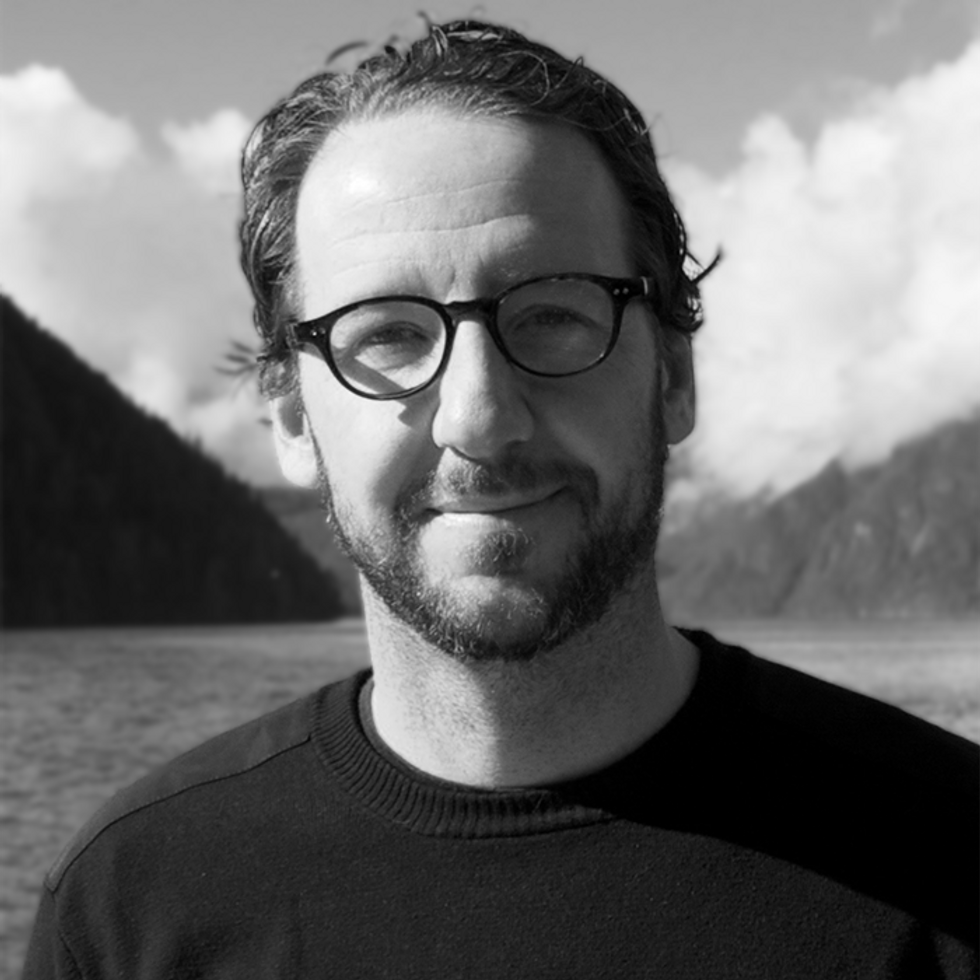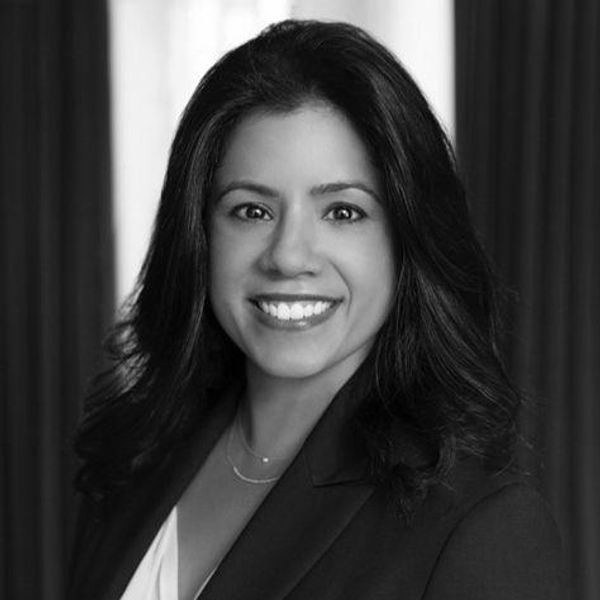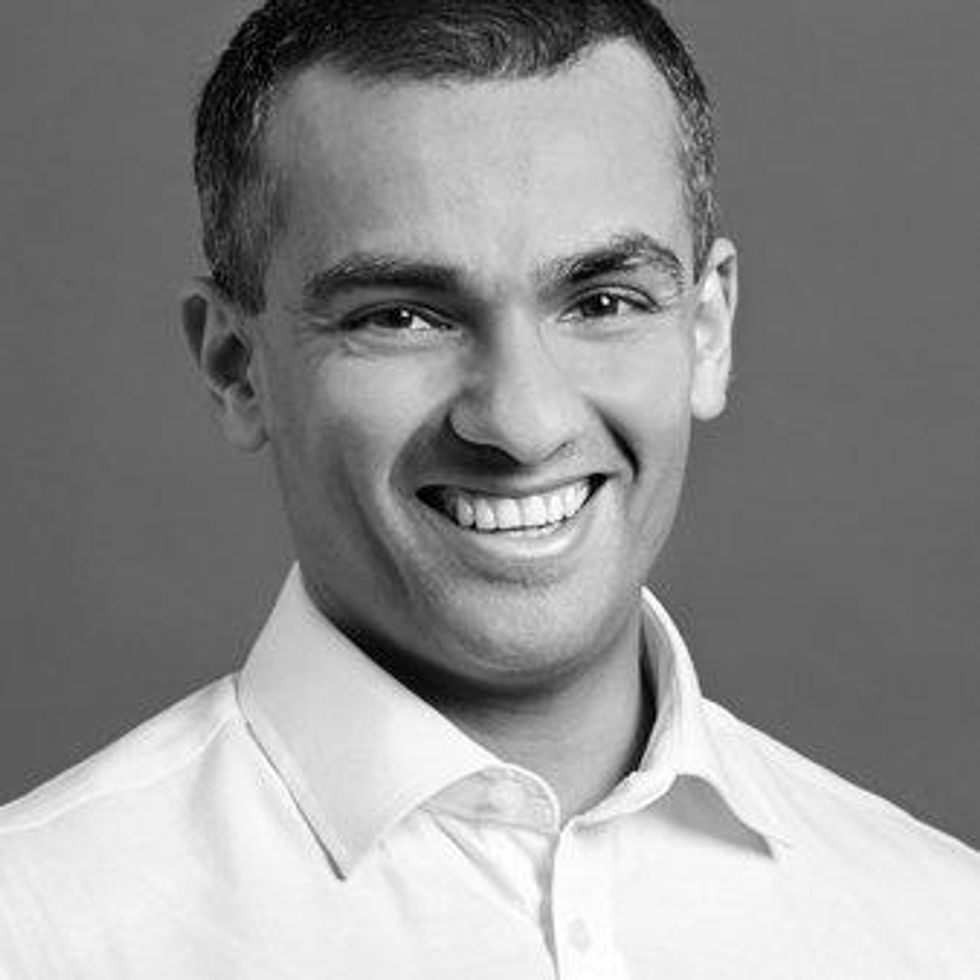Trending Now
We have updated our Privacy Policy and Terms of Use for Eurasia Group and its affiliates, including GZERO Media, to clarify the types of data we collect, how we collect it, how we use data and with whom we share data. By using our website you consent to our Terms and Conditions and Privacy Policy, including the transfer of your personal data to the United States from your country of residence, and our use of cookies described in our Cookie Policy.
{{ subpage.title }}
Corporations losing the culture wars — Angela Hofmann
For Angela Hofmann, practice head for Industrial & Consumer at Eurasia Group, the world's most visible brands are in for a very rocky year.
Navigating culture wars will be very tricky, as well as fighting with competing demands from consumers, employees, and regulators on issues like China, diversity, and voting rights.
Consumers, empowered by social media, are using their voices and purchasing power to influence non-market issues, with a focus on supply chains.
These consumers are forcing multinationals to have visibility and accountability for all of their levels of production.
Firms face be a double-edged sword: fury from hyper-charged consumers utilizing social media, and pressure from US regulators.
Hofmann says companies must focus on ESG "with a particular focus on that S."
“Reinventing supply chains and investing in compliance issues, but with the expectations from the public and new regulations on the way, there's just simply no going back."
Watch the full discussion here: https://www.gzeromedia.com/events/top-risks-2022-w...
Episode 10: Can private companies lead the way on climate action?
Listen: With bold commitments coming from both political and business leaders around the globe, 2021 could be a critical year in the fight against climate change. As sustainable investing moves from being a nice idea to a necessary move, what does it mean for your bottom line?
In the latest episode of Living Beyond Borders, moderator Caitlin Dean speaks with experts about what's next for sustainability, protecting the planet, and the impact it will all have on investors and markets. Guests include Harlin Singh, Global Head of Sustainable Investing, Citi Private Bank; Davida Heller, SVP of Sustainability & ESG, Citi; and Gerald Butts, Vice Chairman at Eurasia Group.

Gerald Butts
Vice Chairman, Eurasia Group

Caitlin Dean
Practice Head, Financial & Professional Services, Eurasia Group

Davida Heller
SVP of Sustainability & ESG, Citi Global Public Affairs

Harlin Singh
Head of Sustainable Investing, Citi Private Bank
The Graphic Truth: The global sustainable investment surge
As more investors back responsible businesses and funds, the growth of assets under management that are ESG-compliant (under one standard or another) has been soaring in recent years. What's more, the geographic scope of this market is growing. A few years ago it was mainly big in Europe , but it's now picking up fast in the US and expanding to Asia, driving a massive boost this year alone. Why? By throwing a glaring spotlight on global inequality, the thinking goes, the pandemic has been a major driver of investment that focuses less on hard profits and more on socially and environmentally responsible capital management. Will this sustainability surge carry on next year? We take a look at ESG investment's upward trend over the past eight years — globally and by region.
What We’re Watching: The politics of ESG, the priorities of “Renewable China”, and the Big Losers in all of this
The future of ESG: Global investor interest in supporting sustainable companies has soared in recent years. But how do you define "sustainable"? One widely used criteria is ESG, which stands for "environmental, societal, and (corporate) governance." The catch, however, is that there still isn't a uniform definition of ESG criteria and regulation across different markets. For example, the EU and the US — home to the largest financial markets in the world — still disagree on the basic question of whether pension funds can classify or not. Meanwhile, outside of these two markets and some parts of Asia, the concept of ESG is relatively scarce in much of the developing world. So, what about China, where the sustainable investment market remains virtually untapped? If the Chinese join the party, it could be a game-changer. The larger the ESG market, the more lucrative it can be — and the better that is for society and the planet. But that means that the world's three largest economies, which hardly see eye-to-eye on anything these days, will have to agree on common standards for global ESG investment to truly take off. We're watching to see if and how that might happen.
Renewable China: The world's second largest economy pollutes — a lot. But China has also in recent years emerged as a leader in renewables investment. Why? One reason is that Beijing is increasingly worried about the security of its massive oil imports. Much of those come from the Middle East, where China has relied for decades on the US to provide security. But now that the US itself is a leading oil producer, Washington is less interested in the region, making China more vulnerable to supply disruptions there. At the same time, China's heavy reliance on coal-fired energy plants has poisoned China's air and water, and even stoked unrest. All of this has prompted the Chinese government to become, in recent years, an industry leader in the development of renewables like solar and wind power technologies. China is also the world's largest maker and buyer of electric cars. One big thing to watch here is how much China cooperates with other economies -- particularly the US. Are we headed for a world where the two largest economies are green tech rivals or partners?
Those who see red in a greener world: The sustainability revolution is undoubtedly good for the planet and, as we've seen, for financial investors too. But spare a thought for those who have the most to lose in all of this: oil-exporting economies. Even before the coronavirus pandemic kneecapped global demand for oil — briefly sending prices into negative territory — they faced big challenges. The shale oil revolution in the US had whittled away American demand for foreign crude. Emissions reduction and renewables policies in the US, China, and Europe were undercutting long-term demand for what the Saudi Arabias, Russias, Nigerias, Venezuelas, and Iraqs of the world sell. In these countries, oil delivers more than two thirds of export earnings and is the bedrock of the budget. Over the next decade, oil exporters have tough choices to make about how to diversify their economies. Demographic pressures make the problem especially acute in the Middle East and Africa: in Saudi Arabia and Nigeria, for example, more than two thirds of the population is under 30. Even when oil prices were high, the energy industry wasn't going to provide enough good jobs for them. Countries with bigger rainy day funds, like Saudi Arabia or Russia, may have more time to figure this all out. But what of cash-strapped Iraq or economically-wrecked Venezuela?
GZERO Summit on sustainability: COVID-19’s promise on ESG
The forced slowdown of global economic activity due to the coronavirus pandemic has slashed carbon emissions around the world, opening a unique opportunity to make real progress in the fight against climate change. But there is fear that it won't be enough, and the world will go back to its old ways when we get rid of COVID-19. However, even before the public health crisis, some major emitters had already taken ambitious steps to rethink how to make their own policies more sustainable.
In Canada, the prominence of oil in the economy doesn't mean that it should hide from the existential challenge of climate change. Fossil fuel profits make Canada not only more responsible but gives the nation the resources to commit to a bold climate policy, Canadian Minister of Natural Resources Seamus O'Regan said during a panel discussion on sustainability at the 2020 GZERO Summit in Japan.
Dawn Farrell, president and CEO of Transalta, Canada's largest clean electrical company, noted that we can apply many of the lessons learned from battling COVID-19 to the global struggle against climate change. The same way governments and the public sector have worked together successful vaccines, there must be equal collaboration on carbon prices, which must be set by governments and not the market alone.
Indeed, the pandemic is an opportunity to entirely transform the economy of countries like Japan, which recently committed to producing net zero carbon emissions by 2050 under new Prime Minister Yoshihide Suga.
Other nations with less muscle, though, may struggle to phase out highly polluting fossil fuels such as coal, which still powers dozens of countries across Asia. That's why rich countries should engage and help them, said Tadashi Maeda, governor of the Japan Bank for International Cooperation.
Meanwhile, countries with both the energy and financial resources to aspire to net zero in the near term should deliver on their Paris Accord climate commitments — and support businesses that are doing the right thing for their bottom line and the planet at the same time. For instance, O'Regan argued that Canada understands where the environmental, societal, and corporate governance (ESG) market is moving, for instance on liquefied natural gas.
ESG lately has become code for simply curbing emissions, but Farrell said that ESG investors want to know you can put your money where your mouth is, and show progress… without big disruption like calls for divestment. Indeed, for Maeda pulling back from all fossil fuels is only one aspect of ESG, and not even the most important right now in most emerging economies.
Beyond ESG investing, companies are also learning how to operate in more responsible way. One of them is Sony, a Japanese conglomerate which the Wall Street Journal recently ranked as the world's most sustainable managed corporation.
So, what's the key to Sony's success on sustainability? Dialogue with investors is crucial, explained Kenichiro Yoshida, the company's chairman and CEO.
With elected governments it's a bit different, but even then the way forward is changing our mindset. Farrell said that they are thinking less about who will be in power to set regulations, and more about the values of the people that put the politicians in power to come up with sustainability policies. If you know the people, you can predict how the governments they elect will act in the future.
Watch the above video to learn more insights from our panelists on COVID-19's impact on global sustainability efforts.
Episode 9: Can sustainable investing save our planet?
Listen: Benjamin Franklin famously called on American business leaders more than two centuries ago to "Do well by doing good." To him, that meant creating companies that were not just about the bottom line, but also that helped foster happier and healthier communities. Now, as 2021 approaches and the world recovers from the greatest crisis of our lifetimes, sustainable investing is a bigger discussion than ever. What does it mean, and how does it not only help the environment and societies but also build your bottom line? That's the topic of the latest episode of Living Beyond Borders.
Moderator Caitlin Dean is joined by Harlin Singh, Head of Sustainable Investing at Citi Private Bank; Elree Winnett Seelig, the Head of ESG for Markets and Security Services at Citi; Rohitesh Dhawan, Director of Global Energy and Natural Resources at Eurasia Group; and Gerry Butts, Eurasia Group's Vice Chairman.

Elree Winnett Seelig
Head, ESG, Markets & Securities Services, Citi

Harlin Singh
Head of Sustainable Investing, Citi Private Bank

Gerald Butts
Vice Chairman, Eurasia Group

Rohitesh Dhawan
Managing Director, Energy, Climate & Resources, Eurasia Group

Caitlin Dean
Practice Head, Financial & Professional Services, Eurasia Group
Investing in diversity: How public companies can promote inclusivity
Betty Liu, Executive Vice Chairman for NYSE Group, provides her perspective:
What role does diversity play in investing?
So, diversity has played an increasingly important role in investing. In an earlier episode, I talked about ESG - that's environmental, social and governance - and ESG factoring more into investment decisions. Diversity is a key component of ESG. It's seen as crucial in looking at good governance and good decision making. So, a growing number of investors are looking at diversity as a metric to show whether or not this company is worthy to invest in.
What are public companies doing to advance diversity today?
As you all have seen in the last several weeks, there has been an increasing focus on diversity and companies have come out and reaffirmed their commitment to diversity and also pledging to do better. So, some of those commitments include looking at pay equity as well as opportunities for advancement, real opportunities for advancement. One of the things we're doing at the New York Stock Exchange and I'm very proud of, is reform the NYSE Board Advisory Council, whose mission is to improve diversity on public and private company boards. We help our listed companies find and place diverse board candidates.
The Future of Environmental, Social, and Governance (ESG)
Kevin Sneader, global managing partner for McKinsey & Company, provides perspective on how corporate business leaders should reassess their approach to ESG criteria.
What's going to happen to Environmental, Social, and Governance (ESG)?
The answer in one way is quite simple, "S" is going to become a whole lot more important. Social. Many CEOs rushed to sign declarations of purpose at the end of last year. We're going to find out now what those mean. As I chatted with CEOs across the globe, one of things that struck in my mind from one of them was that now we have to deliver. What will it take to deliver on purpose? First thing is to be clear on what that purpose is. Many businesses have been working on that.
Most importantly, what are we going to do that's different?
Some simple words of advice come to mind. The first is make sure that our people will now see this in metrics, and in responsibility and accountability. This matters more than anything. Secondly, be clear on how you as a leader are going to hold people to account on those metrics. Thirdly, walk the talk. Make sure your own house is in order. Do everything you can to ensure that before you talk about what the world should do, you're clearer on what you should do



